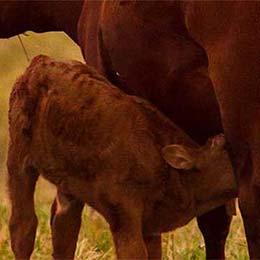
Upcoming workshops
Interested in improving reproductive management of cow-calf herds through a systems-based approach?
What are the common causes of suboptimal reproductive performance in a cow-calf system? How do we manage this system proactively and holistically for continuous improvement?
In fall 2021, University of Missouri Extension launched a workshop series on Whole System Management of Beef Cattle Reproduction. The objective is to aid Missouri producers in improving the reproductive management of their cow-calf herds through a systems-based approach.
Jordan Thomas, state extension specialist in beef cattle reproduction, guides participants in a full-day workshop. Relevant reproductive technologies like synchronization and artificial insemination are covered in context, but emphasis is on yearlong management of the overall system. Specific topics include:
- Managing for an ultra-short calving season in the cow herd
- Managing cow body condition economically
- Heifer selection and building a profitable heifer development enterprise
- Maintaining cows in positive energy balance in variable forage conditions
- Minimizing effects of stress (heat, fescue toxicosis, etc.) on reproduction
- Bull management in-season and out-of-season
Workshops include presentations as well group discussions, scenario troubleshooting, and a tour and overview of the reproductive management system at a University of Missouri Agricultural Experiment Station Research Center. All participants receive a copy of the MU Extension publication CB28, Whole System Management of Beef Cattle Reproduction.
Participants will leave with a new perspective about reproductive management of cow-calf herds, viewing common causes of variability in reproductive performance now as leverage points for future improvement. After the workshop, participants are encouraged to schedule a farm visit with their regional livestock specialist or with a cross-disciplinary team of extension specialists (agronomy specialist, ag business specialist, etc.) to address specific challenges faced on their own operations.